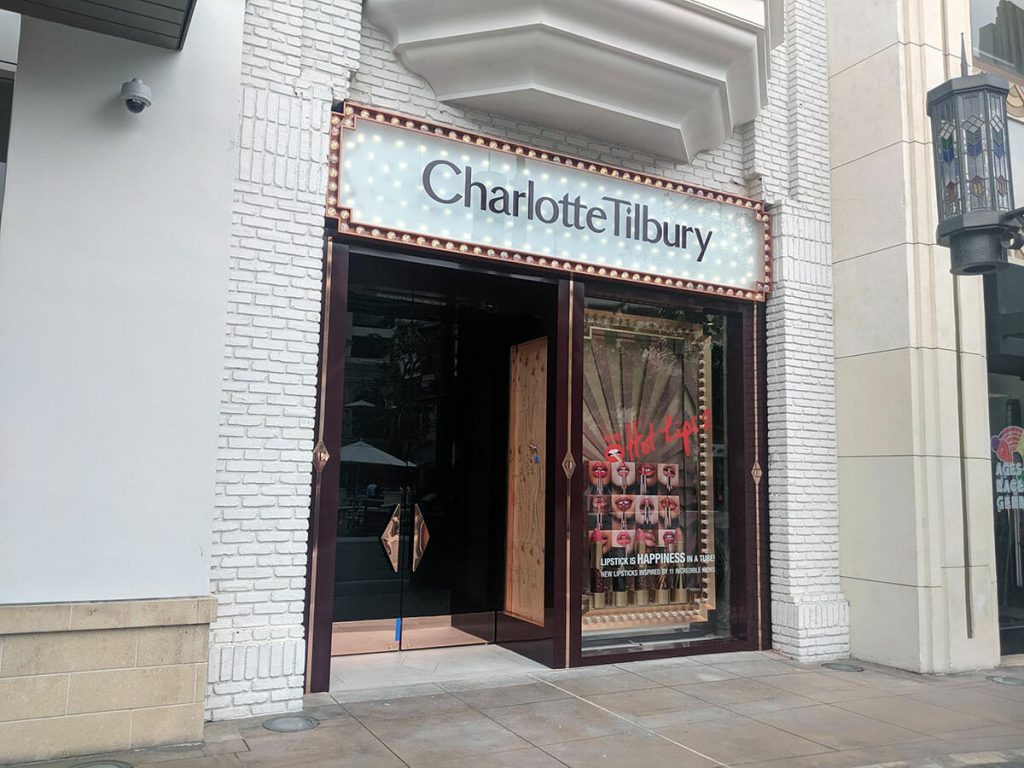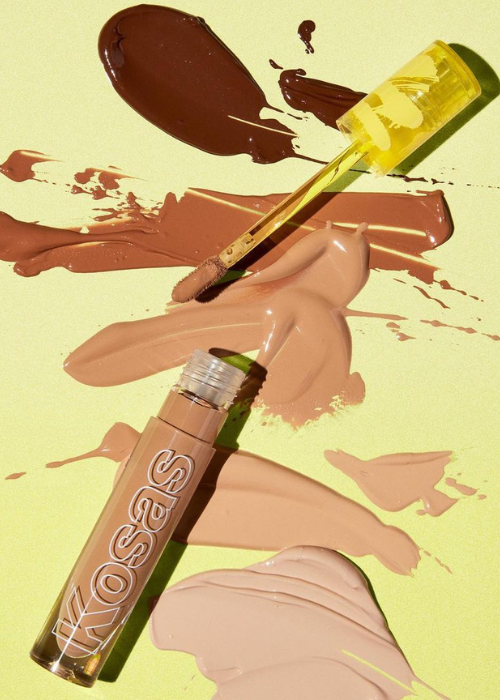The Beauty Industry is Cleaning Up with the Help of Social Media
If you’ve ever caught yourself feeling guilty during a TikTok scrolling session that lasted longer than your 15 minute break when you are supposed to be working from home, you are not alone. TikTok has become the number one social media platform with more than one billion monthly active users with users spending an average of 95 minutes per day on the app.
TikTok has transformed the beauty industry with new marketing and business strategies, and through TikTok a quick 15-second review or tutorial can lead to an overnight sell-out. It has also allowed for the consumer to interact with brands to express their concerns or approval. As a result, it has become a new trend to support clean and sustainable beauty brands. One can now search ‘clean beauty’ on TikTok and get lost in an endless scroll of must-have products, skincare routines, dupes, and reviews on clean beauty brands. This accessibility allows for the consumer to do their own research and become more educated on what it means to be a sustainable because there is a lot of unintentional greenwashing and misinformation.
As a billion dollar industry, going green and clean was never at the forefront of issues for the beauty industry, but thanks to the help of digital media there has been a shift towards more socially responsible brands as companies have become more educated and aware of their overall impact on the environment. Consumers have become more engaged in their purchase decisions, which has led to consumers boycotting products considered to be unethical on social media. As a result, beauty industry conglomerates have remodeled their business and marketing strategies to look beyond revenue and create a positive association with their branding.
This phenomenon has consumers more conscious of the products they are purchasing due to this “trend” of buying from sustainable brands and searching for better alternatives with cleaner ingredients, ethical supply chains, thoughtful packaging, and charitable giving. The way the media has been covering this phenomenon of sustainability initiatives has created a new sense of pressure and accountability to implement corporate social responsibility in their mission statements. Media coverage ranging from news articles to social media posts has impacted how corporate America and consumers consider the environment, and as a result the beauty industry has evolved.
‘Unsustainable’ is a digital magazine reporting on sustainability, ethics, ecosystems, climate, and renewables. In an article titled, “Environmental Sustainability in the Beauty Industry” the author explores each individual challenge for brands looking to minimize the environmental effects of their products and sustainability practices. The efforts of this digital magazine are one of the many contributing factors in digital media that has consumers creating a new expectation of brands and being more conscious of how their daily routines impact the world at large.
“So I would say 15 years ago or so, there was a transition from kind of a traditional, what some would call corporate philanthropy or writing a check to a cause, to really starting to think more strategically and authentically about what the role of the company is within society,” says John D. Trybus, professor and executive director of Georgetown University’s Center for Social Impact Communication, a research and action center focusing on societal change.
Professor Trybus believes media coverage not only plays a huge role, but so does regulatory governmental obligations and the expectations of stakeholders. All of these factors have caused a transition that has pushed companies to not only be thinking about external action, but also what goes on internally with employee engagement strategies. Take a listen below to hear Professor Trybus expand on the growth of social impact in the beauty industry.
“There’s an endless amount of intersectional issues and as we think about environmental issues that’s also linked to gender, racial identity and other forms of social justice economics. But what’s more is they’ve got to think about it not only when the economy is good, but also when there’s times of recessions. How do you keep that work sustainable? How do you make those long term commitments over time?” says Professor Trybus.
Another perspective of the sustainability phenomena is in relation to how the world post-COVID 19 has been impacted. In a study published by the Journal of Cosmetic Dermatology that explores the changes that have taken place in the beauty industry due to media coverage on the pandemic found that consumers have a new perspective on safety and hygiene. Our society values cleanliness and a healthy lifestyle more than ever after COVID-19. Especially with the use of masks there were increased skin problems, which created a demand for products that were considered ‘clean’. The beauty industry has evolved to meet the expectations of the consumer by increasing CSR efforts due to the media coverage of the pandemic and how the world’s perspective on sustainability and health has shifted. The impact COVID-19 had on mental health alone is connected to the reason we value leading a healthier, beautiful life leading to industries taking into consideration their environmental impact.
The role of storytelling can be a very powerful practice instead of traditional marketing or advertising to communicate the role of a brand or company in CSR. Consumers are expecting companies to contribute or else they risk going out of business.

Lindsay Shoji is a beauty consultant and brand representative of Charlotte Tilbury, one of the hottest brands on the market right now due to products going viral on TikTok. “It’s the age we live in now, everybody’s on Instagram or TikTok. So I feel like that’s just an easy way to get exposed and market a brand,” said Lindsay.
When I asked if Lindsay would not buy from a brand because they were not marketed as sustainable or green, she said it was not a determining factor but, “…if the founders of a brand said or did anything that was homophobic or racist, then they would definitely lose my business.”
However, she appreciates brands that do make an effort to make a social impact such as Charlotte Tilbury Beauty. “A lot of the Charlotte Tilbury products are recyclable, so it’s definitely sustainable in that way because you’re not wasting any packaging,” said Lindsay.

Charlotte Tilbury has led a great example in their social impact efforts. In honor of Their Majesties Coronation last month, Charlotte Tilbury Beauty launched a limited edition Coronation Red Lipstick in partnership with The Prince’s Trust. The brand donates 29 Euros or 31 U.S. dollars for every sale to the youth charity. The Prince’s Trust Enterprise Program supports young entrepreneurs and business leaders by providing resources and mentorship to pursue their dreams.
USC seniors Leanne Rahamim and Natalie Demartino launched the Business Cosmetics Club on campus their freshman year with the goal of educating their peers on launching a beauty brand and how to continue to stay competitive in such a concentrated industry by providing networking opportunities and panels. As avid consumers in the beauty industry they both value brands that have made an effort to have sustainable packaging and clean products. However, ‘clean’ in the beauty industry is a very vague definition and it is super important to be price competitive with the viral or award winning products that are not considered sustainable or clean.
“I’d rather stick to the products that have preservatives on it and will last me longer and then the products that could grow mold and are put on around my eyes and can cause really bad infections,” said Rahamim.

Kosas, one of Sephora’s leading clean beauty brands, has been blasted on social media over allegations of their best-selling concealer containing mold. However, the shelf life of these clean brands is shorter due to the safer preservatives and ingredients. The noteworthy concealer has a shelf life of six months compared to an average shelf life of one year. This is an example of the lack of education on what clean beauty products look like.
That’s why having sustainable packaging that can either be recycled or is refillable is so important since clean products have a shorter shelf life!
Rahamim also touched on the value and intention behind CSR in big conglomerate companies such as L’Oreal.
“The stuff that they’re doing for Turkey and Syria is really big right now. They aren’t promoting it on their social media. It’s just stuff that they’re doing internally because they actually believe in it heavily. So I think a lot of it, it’s like, yes, be transparent, but also like you don’t need to promote every good thing because then what are you actually doing it for? I really value that they’re not always showing the good things that they’re doing, but rather it’s behind the scenes.”
As awareness grows, so does pressure on brands to acknowledge their impact and contribution to the planet. In turn, cosmetic brands have realized the power in social media to assemble communities and amplify key messages and are making changes in response to consumer demand for ethically sourced and clean products. In a report by The Economist Intelligence Unit commissioned by the World Wide Fund for Nature, the popularity of Google searches for sustainable products grew by 450% between 2016 and 2020, and over 11 million news articles were written about nature loss and biodiversity between 2016 and 2020.
Many factors such as the pandemic, social media, and accessibility have led to a community of consumers that are more educated and knowledgeable on the issues pertaining to the health of the planet, which in turn has shifted the expectations of the consumer and their consumption pattern. Beauty campaigns are now all centered around the ethics of the brand more so than the performance of the product. This transition to promote corporate social responsibility has allowed brands to embrace taboo topics such as sustainability.
INTERVIEW WITH A MARKETING MOGUL & SUCCESSFUL ENTREPRENEUR IN THE BEAUTY INDUSTRY
I had the opportunity to sit down with Nicole Collins, a beauty industry marketing mogul and successful entrepreneur who has worked for brands like IPSY and alongside beauty influencer Michelle Phan. We discussed social media marketing, gaining brand awareness, distribution, social responsibility, and unintentional greenwashing in the beauty space. Check out our conversation below to gain more insight on how the beauty space is evolving.
CONSUMER POV
I asked consumers of the beauty industry what their favorite products were and if they purchased from a brand based on ethics and sustainability, or product performance. I discovered that most consumers prefer when products are eco-friendly, have clean ingredients, and fair labor practices, but that it is not a major factor in their purchase decisions. However, most of the consumers I spoke with did not trust that all brands claiming to be ‘clean’ and ‘sustainable’ actually adhere to these values behind all of the social media branding and in-store shelf marketing. When asked what would deter them from ever repurchasing their go to products, most said it was dependent on the issue, but that a brand not being vegan or sustainable was not a determining factor. Below you can listen to six conversations I had with avid consumers of the beauty industry to hear their thoughts on sustainable brands and clean products.


